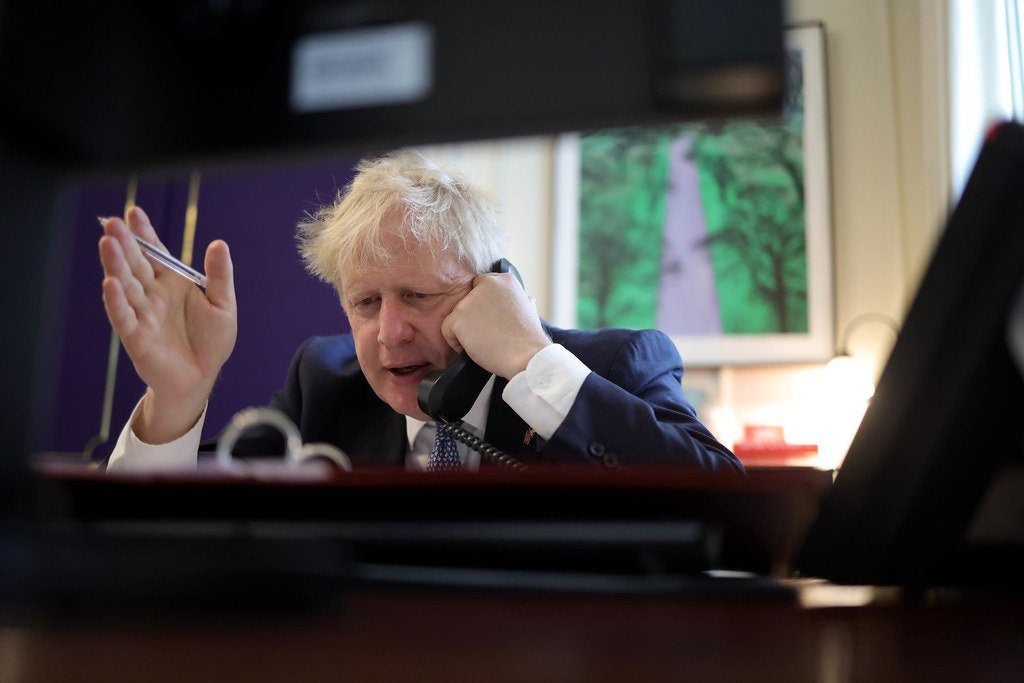Boris Johnson: 2.5% Defense Spending Goal Depends On Economic Growth Through 2030
British Prime Minister Boris Johnson has watered down a pledge he made to increase British defense spending to 2.5% of British gross domestic product by 2030, saying that achieving the target would depend on the United Kingdom’s economic growth by then.
Speaking in the Commons on Monday, Johnson elicited concern from members of his Conservative Party when he said it was “likely” that the goal would be met by 2030, saying that it was the “logical conclusion” of current spending on British armed forces modernization programs.
Former Conservative chief whip Mark Harper then asked Johnson:
“When the prime minister’s remarks at the Nato summit were reported last week, the 2.5% commitment to spend on defence appeared to be really quite solid. His remarks today are less so. So assuming it is a commitment, can I just ask him, is it a commitment? And secondly, how are we going to pay for it?”
Johnson replied:
“This is a straightforward protraction – prediction – based on what we are currently committed to spending under the Aukus programme and under the FCAS (Future Combat Air System, also known as Tempest) programme as well.
These are gigantic commitments. I think they’re the right thing for the UK. They will take us up to that threshold. Of course much depends on the size of our GDP at the time. Much depends on the growth in the economy.
I think we’re going to pay for it out of steady and sustained economic growth.”

A day after Johnson’s claims that the spending target would depend on economic growth, Bank of England Governor Andrew Bailey told reporters at a press conference that prospects for the British and global economies had worsened since the start of the year. “The global economic outlook has deteriorated markedly. Global financial conditions as a whole have tightened significantly”, said Bailey at a news conference after the Bank of England published its half-yearly Financial Stability Report (FSR).
Tying the pledge to British economic growth in an apparent about-face is likely to intensify criticism of the embattled Prime Minister, who has recently been accused of lying about not knowing of sexual harassment allegations against political ally Chris Pincher. Pincher resigned from his position as Conservative deputy chief whip on 30 June, after drunkenly groping two men at a Conservative Friends of Cyprus event on 29 June.
In response to claims from Johnson’s office that he did not know of allegations against Pincher predating the incident, former top Foreign Office civil servant and crossbench peer Simon McDonald has written to the parliamentary standards commissioner, saying that the Prime Minister had been personally briefed on a 2019 complaint against Pincher for allegedly groping someone, and that Pincher was “not exonerated” in the subsequent investigation. Johnson’s position took a further significant blow on Tuesday evening when both health minister Sajid Javid and Chancellor of the Exchequer Rishi Sunak resigned.

